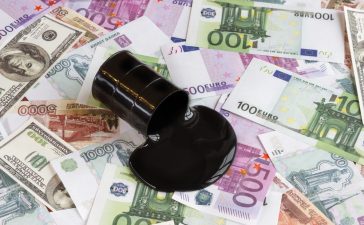S&P futures decline 0.6%, a day after the underlying stock index gained 1.95%
Stocks were little changed but near a record high while the dollar and U.S. bond yields stayed sluggish on Friday on bets that a divided U.S. Congress would hinder government borrowing, which could pave the way for even more central bank stimulus.
Investors expect Democrat Joe Biden will beat President Donald Trump but Republicans will keep control of the Senate, allowing them to block Democrat policy such as corporate tax hikes and debt-funded spending on infrastructure.
From here, we believe the impact of the presidential result should be relatively small, said Lars Kreckel, global equity strategist at LGIM. Whether Biden or Trump are in the White House, governing with a Congress that is very likely to be divided would be difficult and mean very little policy that could significantly move equity markets would be passed.
A sense that a Biden presidency will be more predictable than Trump’s is also underpinning risk sentiment, even though investors saw no quick rapprochement between the United States and China on trade and other issues.
U.S. S&P futures dropped 0.6%, a day after the underlying stock index rose 1.95%.
Trump’s attempts to pursue lawsuits challenging elections in several states have so far done little to change expectations of the outcome.
Still, some market players are wary of street protests getting violent, after Trump claimed the election was being “stolen” from him.
U.S. bond yields drifted lower, with the 10-year Treasury yield falling to 0.773%, below the pre-U.S. election level on Tuesday. It had struck a three-week low of 0.7180% on Thursday.
The Federal Reserve kept its monetary policy loose and pledged to do whatever it takes to sustain a U.S. economic recovery.
With COVID-19 raging in the United States and parts of Europe, many investors assume more monetary stimulus is inevitable.
Investors also focused on the prospects of stalled talks on a U.S. coronavirus relief package restarting.
We still anticipate that there will be a fiscal package in excess of $1 trillion next year, said James Knightley, chief international economist at ING Group in New York. This stimulus, when combined with a long-anticipated COVID-19 vaccine, can really lift the economy and drive growth. We consequently remain very upbeat on the prospects for 2021 and 2022.
In currency markets, lower yields undermined the dollar. The dollar index touched a two-month low of 92.459.
The euro traded at $1.1840 while the offshore Chinese yuan climbed to 6.6000 to the dollar.
A weaker dollar supported the Japanese yen, which rose to 103.43 yen against the dollar overnight. It was steady in early European trade at 103.45 yen.
Gold, which is used as a hedge against inflation in an era of ultra-loose monetary and fiscal policies, fell 0.3% to $1,942 per ounce after jumping over 2% overnight.
Even bitcoin rode high, gaining 10% on Thursday and hitting a high last seen in January 2018.
Oil prices fell as fresh lockdowns in Europe to contain the coronavirus darkened the outlook for crude demand. Brent crude was down 1.2% at $40.45 a barrel. West Texas Intermediate futures were down 1.3% at $38.27 a barrel.





